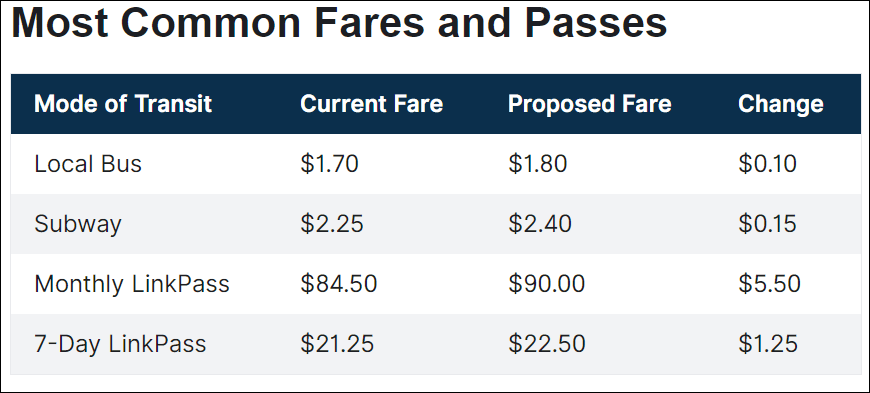Advertisement
The MBTA Proposes Raising Fares By An Average Of 6.3 Percent

The MBTA is planning to raise fares across the transportation system by an average of 6.3 percent, an increase T officials say will boost revenue by $32 million next fiscal year to help meet rising costs.
The proposed increases would take effect July 1. The MBTA said the last time it raised fares was July 1, 2016.
T officials presented their proposal to the Fiscal Management and Control Board on Monday. The public comment period will be open until Feb. 28, and officials are asking the board to vote on the increase at its March 11 meeting.
MBTA general manager Steve Poftak labeled the proposal an incremental change that amounts to less than what is allowed under state law. (The law limits fare hikes to 7 percent over a two-year period.)
“This is, I think, a modest fare increase; it keeps pace with inflation,” Poftak said. “I also think doing it on a periodic basis where the rise is not so dramatic — I’m hopeful that this lands a little bit easier than in the not-so-distant past, where the fare increases were larger.”

Under the plan, local non-cash bus fares would increase by $.10, from $1.70 to $1.80, and CharlieCard subway fares would go from $2.25 to $2.40.
Senior and student passes would go up $2, to $32, and the monthly link pass would increase $5.50, to $90.
While most fares would see an increase, some would remain steady or even go down. Cash bus fares remain at $2 under the plan, while the Hingham/Hull ferry to Logan Airport is reduced.
The transit authority is facing a slew of cost increases, including rising health care and pension contributions, as well as contractual obligations including ferry service and snow removal that tick up annually.
One of the people who spoke against the proposed hikes at Monday's meeting was Sarah Levy, a transit and environmental justice organizer at the nonprofit Green Roots.
"We expect that you will be creative in finding new ways to bring in revenue other than placing the burden on riders," she said. "If you are truly committed to making the T more affordable and equitable, we ask that you take a step in the right direction, harnessing your innovativeness as opposed to moving in the opposite direction of your stated goals."
And state Sen. Nick Collins, a Boston Democrat, talked about how fare hikes would have a disproportionate impact on low-income people.
"With the system continuing to suffer from service and reliability issues, a fare increase would not only be unfair to riders," he said, "but would also drive away many potential users and current users from the system, worsening traffic on our road and driving increased emissions there by subverting the mission of public transit."
This article was originally published on January 28, 2019.
This segment aired on January 28, 2019.
